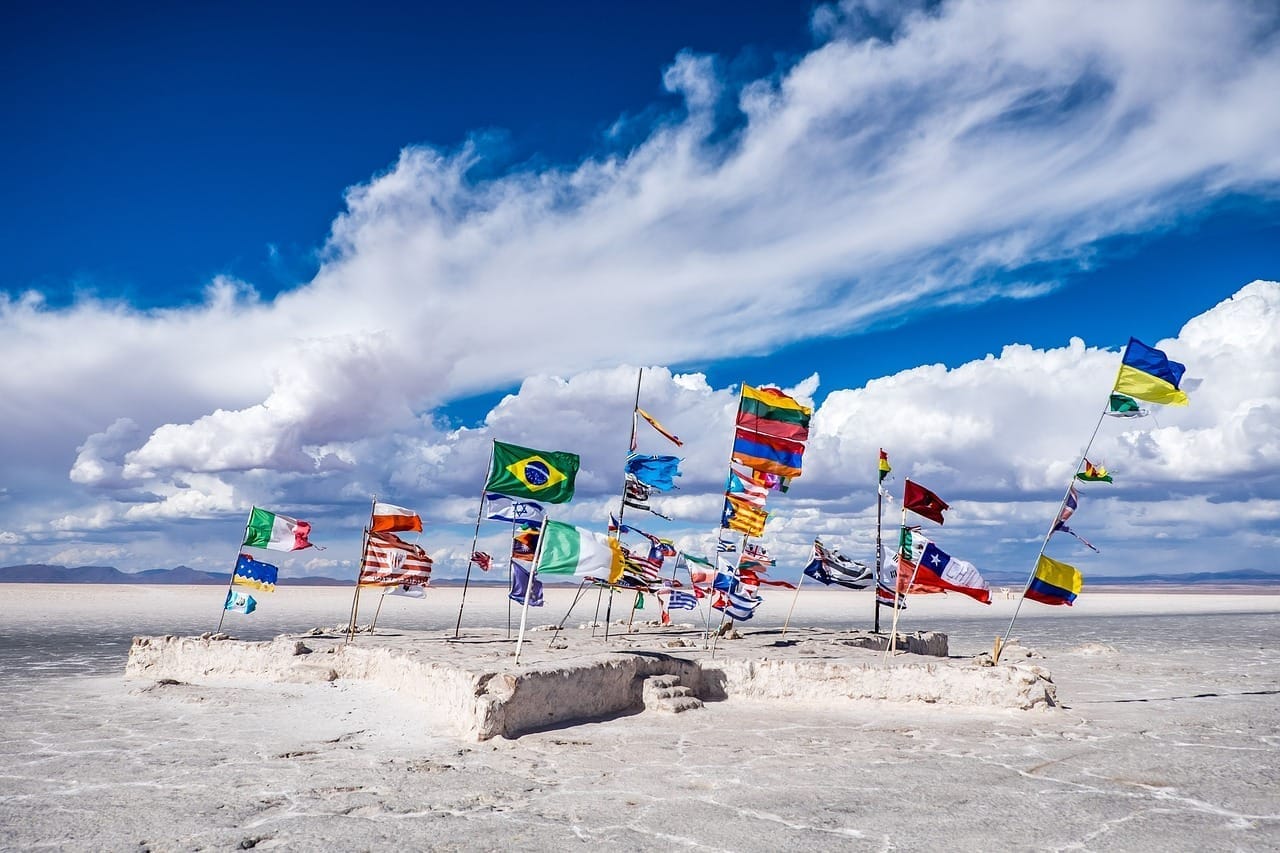
If You're Not Taking Steps Right Now To Protect & Secure Your Future, You're Leaving Your Family's Security To Chance
Let me be direct with you: if you're reading this, you're already ahead of 95% of the population.
You see through the mainstream narrative. You recognize the warning signs that others choose to ignore. You understand that the economic and political landscape has shifted dramatically, and you know that hoping things will "return to normal" isn't a strategy—it's wishful thinking.
You may have already taken some preliminary steps to protect yourself and your family. But here's what I need you to understand: the window of opportunity to implement a comprehensive Plan B is narrowing faster than most people realize.
If you're genuinely concerned about the current economic and geopolitical trajectory—and you should be—then I urge you to read every word of this message. This could be the most important decision you make for your family's future.
The Writing Is On The Wall: Why Waiting Is No Longer An Option
We're witnessing a convergence of economic, political, and social factors that haven't occurred simultaneously in our lifetime. For Americans and Canadians who have built wealth over the years, the current environment presents unprecedented challenges:

The Economic Reality:
Inflation continues to erode purchasing power despite official narratives
Government debt has reached levels that mathematically require either massive tax increases or currency debasement
Central bank policies have created asset bubbles that must eventually correct
Supply chain vulnerabilities have exposed the fragility of our economic system
The Political Landscape:
Increasing governmental overreach in personal and financial matters
Erosion of constitutional protections in the name of various "emergencies"
Growing divide between government priorities and citizen welfare
Expansion of surveillance and control mechanisms
The Social Fabric:
Rising crime rates in major cities with reduced prosecution
Breakdown of social cohesion and shared values
Educational system failures affecting future generations
Healthcare system strains and access issues
Does this paint a picture of stability and prosperity? Or does it suggest a system under severe stress?
Remember 2020? That Was Just The Beginning
The events of 2020 provided a preview of how quickly "temporary" restrictions can become normalized. Travel bans, business closures, movement restrictions, and financial controls were implemented overnight. What seemed unthinkable in January became routine by March.
But here's what most people missed: these weren't emergency measures that disappeared when the crisis passed. Many became permanent expansions of government power. The infrastructure for control was built and tested, and it remains in place.
Now imagine similar restrictions implemented during an economic crisis, social unrest, or international conflict. Do you think the response will be more measured, or more severe?
The 15-Minute City Concept
Urban planning initiatives are already being implemented that restrict movement and monitor citizens under the guise of environmental protection. Combined with digital identification systems and social credit scoring, the framework for unprecedented control over daily life is being systematically constructed.
Capital Controls Are Coming
History shows us that governments facing fiscal crises always implement the same playbook: currency controls, exit taxes, wealth confiscation, and restrictions on moving assets abroad. Argentina, Venezuela, Cyprus, and dozens of other countries have followed this exact pattern.
The question isn't whether these measures will come to North America—it's when, and whether you'll be prepared.
The New Global Order: What It Means For You And Your Wealth
Our leaders have made their priorities clear, and they don't align with the interests of productive, taxpaying citizens. Consider the evidence:
Foreign Policy Priorities:
Hundreds of billions sent overseas while domestic infrastructure crumbles
Military interventions that create more instability than they resolve
Trade policies that benefit multinational corporations at the expense of domestic workers
Immigration policies that strain public resources and depress wages
Domestic Policies:
Energy policies that increase costs while reducing reliability
Regulatory frameworks that favor large corporations over small businesses
Taxation systems that penalize productivity and savings
Monetary policies that benefit asset holders while punishing savers

The Equity Agenda: The push for "equity" isn't about fairness—it's about redistribution. Your wealth, built through years of hard work, saving, and smart decisions, is viewed as a resource to be redistributed to achieve political objectives.
This isn't a conspiracy theory—it's stated policy. Officials openly discuss wealth taxes, unrealized capital gains taxes, and inheritance tax increases that would transfer your assets to government programs.
The Accelerating Timeline: Why "Later" May Be Too Late
If you think the pace of change has been dramatic over the past five years, understand that we're likely entering an acceleration phase. Several factors are converging:
Economic Pressures:
Government debt service is consuming an ever-larger portion of tax revenue
Social programs are becoming mathematically unsustainable
Infrastructure requires a massive investment that isn't being funded
Demographic changes are reducing the taxpayer base
Technological Implementation:
Digital currencies that enable complete transaction monitoring
Artificial intelligence systems for social control and compliance
Internet infrastructure that can be selectively restricted
Financial systems are increasingly dependent on government approval
International Tensions:
Trade wars that disrupt global supply chains
Military conflicts that could escalate rapidly
Cyber warfare targeting critical infrastructure
Alliance structures that could draw nations into broader conflicts
Each of these trends individually would create challenges. Together, they represent a fundamental shift in how society will be organized—and not in a direction that favors individual liberty or financial privacy.
Your Children's Future: The Real Stakes

This isn't just about protecting your current wealth—it's about the world you're leaving to the next generation.
Young adults today face prospects that would have been unthinkable a generation ago:
Housing costs that consume 50-70% of income in major cities
Student debt that can never be discharged
Career prospects are limited by credentialism and regulatory barriers
Social systems that will be bankrupt by the time they need them
Meanwhile, they're inheriting a society with:
Infrastructure from the 1950s that's failing
Environmental challenges that require massive adaptation costs
Social tensions that threaten basic civil order
Government debt that will require generations to service
Is this the legacy you want to leave? Or would you rather give your children options, opportunities, and alternatives?
The Solution: Strategic Global Diversification
The wealthy have always understood a fundamental principle: never keep all your assets under the control of a single government. This isn't about patriotism or loyalty—it's about basic risk management.
Consider the ultra-wealthy families you know of. Do they keep all their money in domestic banks? Do they own property only in their home country? Do they rely solely on their birth citizenship?
Of course not. They diversify globally because they understand that governments change, policies shift, and today's stable environment can become tomorrow's crisis zone.
This strategy—which is called "Planting Flags"—is now accessible to anyone with substantial assets to protect. You don't need to be a billionaire to implement these strategies. You need to understand the principles and have the proper guidance.

The "Planting Flags" Strategy Explained
Think of each aspect of your life as a flag that can be planted in the jurisdiction that offers the best combination of security, opportunity, and protection for that specific area:
Banking Flag: Establish banking relationships in jurisdictions with strong privacy laws, stable currencies, and conservative banking practices. Singapore, Switzerland, and the Cayman Islands offer banking services that aren't subject to the political whims of North American regulators.
Investment Flag: Diversify your portfolio across multiple currencies, markets, and asset classes. This might include European real estate, Asian equities, precious metals stored offshore, or agricultural investments in stable developing countries.
Residency Flag: Secure legal residency rights in countries that offer better taxation, personal freedom, or quality of life. Portugal, Malta, and several Caribbean nations offer residence programs for qualifying investors.
Citizenship Flag: Obtain a second citizenship to ensure you always have options for travel, residence, and legal protection. St. Kitts, Dominica, and other nations offer citizenship by investment programs.
Business Flag: Establish business entities in jurisdictions with favorable tax treaties, asset protection laws, and political stability. This can dramatically reduce your tax burden while protecting your business assets.
Real Estate Flag: Own property in stable countries with growing economies, strong property rights, and potential for appreciation. This provides both diversification and a potential place to relocate if necessary.
Each flag you plant reduces your dependence on any single government and increases your options when circumstances change.
Why This Strategy Works: Historical Precedent
Throughout history, those who diversified internationally before crises hit were the ones who preserved their wealth and freedom:
Germany, 1930s: Jewish families who moved assets abroad before restrictions were implemented maintained their wealth. Those who waited lost everything.
Cuba, 1959: Wealthy Cubans who had established foreign bank accounts and purchased overseas property maintained their standard of living. Those who didn't, spent decades in poverty.
Argentina, 2001: Families with foreign accounts avoided the corralito that trapped domestic savings. They maintained access to their wealth while their neighbors' accounts were frozen.
Venezuela, 2013-present: Those who moved assets abroad before currency controls avoided the hyperinflation that destroyed domestic savings.
Cyprus, 2013: The bail-in that confiscated bank deposits above €100,000 affected only domestic accounts. International accounts were protected.
The pattern is clear: governments in crisis always implement the same measures, and those who prepare in advance maintain their wealth and freedom while others suffer.
My Personal Experience: Learning These Lessons Firsthand
I've spent over a decade living, investing, and doing business internationally. This isn't theoretical knowledge—it's practical experience gained by actually implementing these strategies in my own life.
This diversification has provided not just security, but opportunity. I've been able to:
Reduce my tax burden legally and substantially
Access investment opportunities not available to domestic-only investors
Enjoy a higher quality of life in countries with better infrastructure and services
Build relationships with international professionals and business partners
The wealth preservation benefits are obvious, but the lifestyle benefits have been equally valuable.
The Myths And Misconceptions You Need To Ignore
Let me address the common objections and misconceptions that prevent people from acting:
"It's Only for the Ultra-Wealthy." This was true thirty years ago. Today, you can open an offshore bank account with $10,000, purchase foreign real estate with $100,000, and obtain a second citizenship with investments starting at $150,000. These strategies are accessible to anyone with substantial assets to protect.
"It's Too Complicated." The process seems complex because you're unfamiliar with it. With proper guidance, it's straightforward. I've helped hundreds of families implement these strategies efficiently and legally.
"The Government Won't Allow It." Everything I do is completely legal. The wealthy have been using these strategies for decades with full government knowledge. The tax code specifically provides for foreign investments, offshore banking, and multiple citizenships. Politicians and bureaucrats may not like it, but it's entirely legal.
"It's Unpatriotic." Protecting your family's future is the most patriotic thing you can do. The government's job is to serve you, not the other way around. When government policies threaten your family's security, you have not just the right but the responsibility to take protective action.
"I Don't Want to Leave My Country." You don't have to leave. Having options doesn't mean you have to use them. But having the ability to relocate, access foreign banking, and maintain international investments provides security and peace of mind that domestic-only strategies cannot match.

The Current Window Of Opportunity
Right now, you can still:
Open foreign bank accounts without excessive restrictions
Purchase real estate in most countries as a foreign investor
Obtain a second citizenship through investment programs
Establish offshore business entities
Move assets internationally without prohibitive taxes or reporting requirements
But this window is closing. Every year brings new regulations, higher fees, and additional restrictions. The FATCA reporting requirements were just the beginning. More comprehensive controls are being implemented annually.
Countries that previously welcomed foreign investment are implementing restrictions. Banking jurisdictions that offered privacy are being forced to share information. Citizenship by investment programs are raising their minimum investments and limiting availability.
The longer you wait, the more expensive and complicated these strategies become. And at some point—likely sooner than you think—many of these options may no longer be available at any price.
What "Smart Money" Is Doing Right Now
My clients include successful entrepreneurs, medical professionals, technology executives, and retirees who have built wealth through decades of hard work. They're not paranoid—they're prudent.
Here's what they're doing:
Moving 20-30% of their liquid assets to foreign accounts
Purchasing real estate in stable, growing markets abroad
Establishing business entities in tax-favorable jurisdictions
Obtaining second passports as insurance policies
Storing precious metals in secure international facilities
They understand that diversification isn't about abandoning their home country—it's about having options when options matter most.
One client told me, "I hope I never need to use my second passport or foreign bank account. But knowing they're there lets me sleep at night in a way I haven't in years."
Time Is Running Out: The Urgency You Can't Ignore
I want to be crystal clear about something: this isn't a sales tactic. The window for implementing these strategies easily and affordably is genuinely closing.
Consider the progression:
2010: Offshore banking was straightforward and private
2014: FATCA reporting requirements were implemented
2018: Additional compliance requirements were added
2022: New international information-sharing agreements took effect
2024: Further restrictions on foreign investments were proposed
Each year brings new limitations and higher costs. What's legal and accessible today may not be tomorrow.
More importantly, if economic or political conditions deteriorate rapidly, capital controls could be implemented overnight. We've seen it happen in other countries, and there's no reason to believe North America is immune.
The time to implement your Plan B is before you need it, not after.
Your Next Step: Don't Wait Until It's Too Late
I can only work with a limited number of clients each month. The personalized attention required to implement these strategies properly means I must restrict the number of new clients I accept.
Right now, I have availability for a small number of new clients who are serious about protecting their families and their wealth. But given current conditions, this availability won't last long.
If you've read this far, you already understand the importance of having a Plan B. The question is whether you'll take action or continue hoping that somehow everything will work out.
Here's what I want you to do right now:
Step 1: Click the button below to schedule a confidential consultation
Step 2: We'll discuss your specific situation and concerns
Step 3: I'll provide a preliminary assessment of which strategies make sense for your circumstances
Step 4: If we're a good fit, we'll begin implementing your personalized Plan B
This consultation is complimentary, but it's not for everyone. I only work with people who:
Have substantial assets to protect (typically $500,000+)
Understand the current risks and are committed to taking action
Are willing to invest the time and resources necessary to implement a proper Plan B
If that describes you, then I encourage you to take action now.
The Two Types Of People In Today's World
There are only two types of people sleeping well at night in today's environment:
Those who are completely unaware of what's happening
Those who are prepared for what's coming
Ignorance might be bliss, but it's not a strategy for protecting your family's future.
You've clearly moved beyond ignorance—you understand the risks and challenges facing our society. The question is whether you'll join the prepared minority or remain vulnerable with the hopeful majority.
Your family's security, your financial future, and your personal freedom are too important to leave to chance.
The smart money is already moving. The question is: will you move with them, or will you wait until it's too late?
Don't let another day pass without taking action. Schedule your confidential consultation now.
Speak soon,
Sally Pederson
Global Citizen Life
P.S. The world is changing rapidly, and these changes are accelerating. What seems stable today may be vulnerable tomorrow. If your instincts are telling you to take action to preserve your freedom and protect your family, trust those instincts.
The wealthy have always understood the importance of global diversification. Now it's your turn to implement these same strategies before the window closes.
Due to the personalized nature of this service and the time required to implement these strategies correctly, I can only work with a limited number of clients each month. Don't wait several months for availability—especially when global conditions are changing so rapidly.
This is your opportunity to join the thousands of Americans, Canadians, Australians, and others who sleep soundly knowing they're prepared regardless of how events unfold.
There are only two ways to sleep well at night: be ignorant or be prepared. If you take your responsibility to protect your family and assets seriously, schedule your consultation now before it's too late.
P.P.S. Several of my clients have recently accelerated their Plan B implementations, understanding that the current environment may not provide many more opportunities to move assets and establish international positions easily. While everything we do is completely legal, processing times are increasing as more people seek these services.
Don't wait until everyone else realizes what you already know. Act now while you still have the luxury of choice.